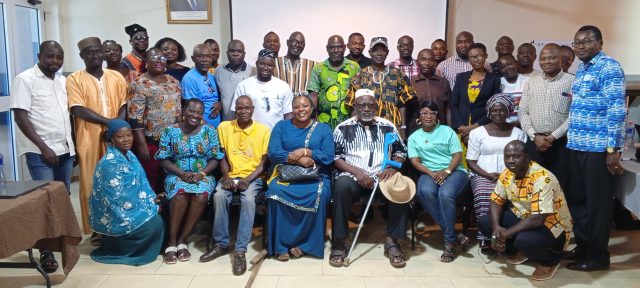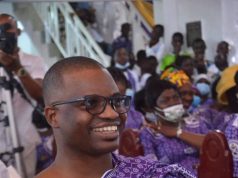The National Peace Council, in partnership with the Catholic Relief Service (CRS), has organised a two-day sensitisation workshop for stakeholders in the Upper East Region to combat hate speech and counter narratives ahead of the December 7, 2024, elections.
The sensitisation, with funding support from the government and people of the Netherlands, equipped stakeholders drawn from civil society organisations, political parties, media, and state institutions, among others, on information sharing, vigilantism, and political tolerance.
It is part of the second phase of the implementation of the Prevention of Violent Extremism Through Social Accountability (PoVETSA II) to empower stakeholders to ensure peace and prevent violent extremism and terrorism.
It also aimed at strengthening Ghana’s peace and democratic stability by fostering a culture of nonviolence and inclusiveness that detests hate speech, incitement to violence, and other narratives that promote toxic polarisation.
Alhaji Sumaila Issaka, the Chairman of the Upper East Regional Peace Council, said the engagement with the stakeholders was also part of broader efforts by the Council to deal with the threat to electoral violence in Ghana.
“We are in an electioneering year and the tensions are high, so, we are trying to defuse this situation to let people feel and understand that we can go through this election like we have done with the eight elections without problems,” he said.
The Chairman emphasised that the election was not a do-or-die affair, and it was important that political parties prioritised the peace of the country to sustain Ghana’s democratic gains.
In her remark, Ms Adelaide Yiriyelleh, Project Manager, PoVETSA project at CRS, reiterated that it was important the peace of the country was maintained before, during, and after the election and called on political activists to desist from engaging in activities that would endanger the peace of the country.
Mr Abraham Azumah Lambon, the Upper East Regional Youth Organiser of the National Democratic Congress (NDC), said while his outfit was committed to ensuring peaceful elections, it was important that the Electoral Commission as a management body demonstrated fairness in the electoral processes.
Mr Michael Atinga Adonbire, the Bolgatanga Central Constituency Youth Organiser of the New Patriotic Party (NPP), said his outfit was committed to prioritising the peace of the country at any given time and commended the Peace Council for their efforts to maintain the peace of the country.
Mr William Obeng Adarkwa, the Upper East Regional Director of the Electoral Commission (EC), said the Commission was committed to ensuring a free and fair election and would not relent on its mandate.
He, however, noted that this could only be achieved with the support and cooperation of all stakeholders and called on the political parties to give the Commission the needed cooperation for a fruitful election.
In a speech, read on his behalf, Alhaji Dr Hafiz Bin Salih, the Upper East Region Minister, noted that the issue of information sharing, hate speech, vigilantism, and political tolerance in the wake of the country’s evolving digital and social media landscape was more crucial than ever as it inched towards the elections.
“This workshop is therefore of profound significance to the Regional Coordinating Council, particularly the Regional Security Council, with whom the ultimate responsibility of ensuring peace and security as the foundation for the region’s development lies,” he added.
The Minister commended the Peace Council and its partners for bringing together the stakeholders to deliberate on the dangers of hate speech, vigilantism, and the need for accurate information sharing and political tolerance.















